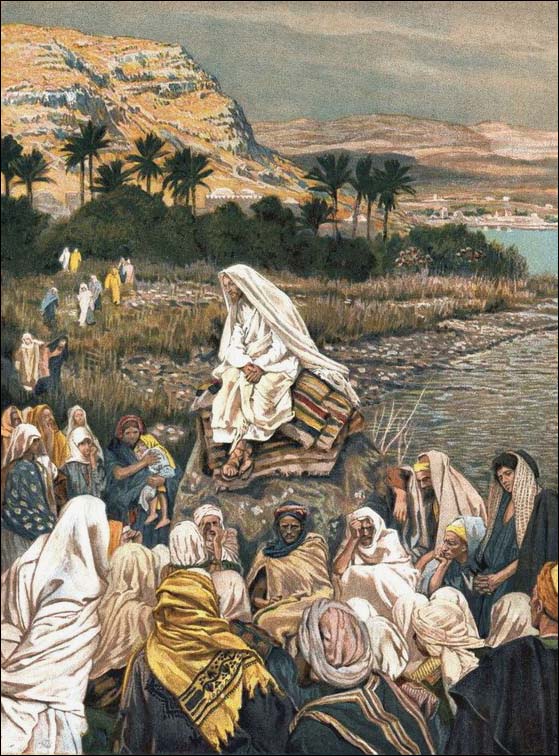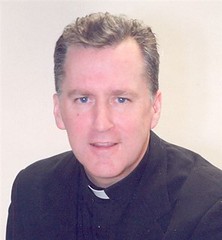
In 1968, two prophets prophesied about the future. Pope Paul VI prophecies in Humanae Vitae have proven true. Paul Ehrlich the author of The Population Bomb has proved to be false prophet.
1) Pope Paul VI was prophetic in Humanae Vitae predicting that widespread use of contraception would lead to "conjugal infidelity and the general lowering of morality." Since the birth control Pill began to be sold in 1960, divorces have tripled, births to unwed jumped from 224,000 to 1.7 million in 2007. Nearly 40 percent of babies born in the United States in 2007 were delivered by unwed mothers. The number of abortions doubled. Cohabitation has increased from 430,000 to 4.85 million couples in 2005.
2) The Pope predicted man would lose respect for woman, considering her "as a mere instrument of selfish enjoyment, and no longer as his respected and beloved companion." The Playboy philosophy prevails today. Men often pressure their girlfriends or wives into abortions so they can remain sexually available to them. Today 40 percent of children in the United States live in homes without their fathers.
3) Pope Paul VI also prophesied that contraception would mislead human beings into thinking they had unlimited control over their own bodies. He was right. The most common form of contraception today is sterilization. People mutilate their bodies to control their fertility. In vitro fertilization which involves the production, freezing and experimenting of ‘spare embryos’ is commonplace. Human clones are created and then destroyed for spare parts. In December 2008, Montana became the third State to legalize physician assisted suicide.
4) Finally, Pope Paul VI predicted that the widespread acceptance of contraception would place a "dangerous weapon... in the hands of those public authorities who take no heed of moral exigencies." This has also proven true as governments like China have engaged in campaigns in programs of forced sterilization and abortion.
Pope Paul VI’s predictions have proved to be true, yet contraception is still proposed for the same problems that it was supposed to reduce. Every year the Federal Government spends hundreds of millions of dollars on contraception supposedly to reduce abortion and illegitimacy. Yet births to unwed mothers have risen from 4 to 40 percent. Hasn’t a generation of failure taught us a lesson?
The Pill today prevents even fewer pregnancies than it prevented 40 years ago." The Pill suppresses ovulation through a heavy dose of a synthetic estrogen, but that often causes nausea and weight gain. So drug companies reduced the amount of estrogen and added progesterone. This made it less effective.
Half of all pregnancies are still unintended. Family Planning Perspectives reports that "18 percent of couples who use condoms and 12 percent who take the Pill become pregnant within two years. " Most women seeking abortions do so because of failed contraception.
While Pope Paul VI’s predictions have proven true, Paul Ehrlich’s dire predictions in The Population Bomb have proven unfounded. Ehrlich predicted a demographic catastrophe with population growth quickly outstripping growth in the supply of food and other resources. Ehrlich predicted that the world would undergo famines and that millions of people would starve to death. There were occasional famines, but not nearly as horrific as Ehrlich predicted.
In his 1990 sequel The Population Explosion Ehrlich predicted that world grain production had already reached its peak in 1986. He was dead wrong. In 1986, about 1.8 million metric tons of cereals were produced, according to the Food and Agriculture Organization (FAO) of the United Nations. Cereal production increased to 20.7 million metric tons in 2001.
In his 1974 book The End of Affluence, Ehrlich stated that, "Before 1985 mankind will enter a genuine age of scarcity ... in which the accessible supplies of many key minerals will be facing depletion."
In the journal Social Science Quarterly, Ehrlich wrote "If I were a gambler, I would take even money that England will not exist in the year 2000."
In 1980, Julian Simon, an economist and population expert challenged Paul Erlich to a famous wager. Simon asked Ehrlich choose five raw materials. Simon bet that the price of the resources would fall. Erlich predicted they would go up. Erlich chose the metals copper, chromium, nickel, tin and tungsten. By 1990, the prices of all five metals had gone down. Ehrlich lost the bet.
Dr. Paul Ehrlich has received many prestigious awards in science and is chief advisor to former Vice President Algore.
Ehrlich is one of a long line of false prophets who have gained fame by dire predictions of doom for the world. Long before Paul Ehrlich there was Thomas Malthus, an eighteenth century Anglican clergyman, who argued that while population increases exponentially, food production only increases arithmetically. Therefore he wrongly predicted that it would be impossible for food production to keep up with the demands of an increasing population.
It didn’t take long for Malthus to be proven wrong. He made his prediction before one of the largest expansions of farming in the history of the world in the 19th century. He didn’t count on the ingenuity of people to come up with new technologies. This ‘man of God’ did not trust in Divine Providence.
The current population of the world is approximately 6.8 billion people, but this population is not booming. It is aging and in decline. Fertility rates have fallen and people are living longer. Experts at the United Nations estimate that the population will peak between 2050 and 2075. Nicholas Eberstadt, a demographer and scholar at the American Enterprise Institute thinks it's likely to come on the earlier. He says that due to declining fertility rates "I think it's perfectly plausible that world population could peak by 2050 or even sooner and perhaps at a level below 8 billion." In 2000, the US Census Bureau reported that 83 countries and territories are now thought to be experiencing below-replacement fertility. Russia, Japan and Western Europe face the danger of population implosion. If it wasn’t for immigration, the population of the United States would also be declining.
Overpopulation is not the cause of poverty. As world population has risen, so also has the standard of living. Cities are sometimes overcrowded because people prefer living in urban centers rather than in rural areas. They cluster together in cities to trade goods and services. Bangkok, Seoul, Singapore, Tokyo and Hong Kong are overpopulated, but prosperous. Taiwan is far more densely populated than China but also far richer. New Jersey is the most densely populated State in the United States. It also has the second highest per capita income.
97 percent of the land surface of the world is empty. The entire population of the world could live comfortably in an area the size of the State of Texas.
Densely populated areas are not necessarily more polluted. Germany has more than 600 persons per square mile. The Netherlands has almost 1200 persons per square mile. Yet China with 330 persons per square mile has far more environmental problems.
All of Paul Ehrlich’s prophecies in 1968 have proved false. Yet he is still revered by elitist, radical environmental snobs on the Left. Pope Paul VI’s prophecies proved true. Yet he still despised and his words are still unheeded. The same prophets of gloom and doom now predict a global catastrophe due to global warming.
Overpopulation zealots fooled us in 1968 with their dire predictions of doom that never came to pass. Let’s not be fooled again by these misanthropic elitists who push us toward contraception, sterilization and abortion supposedly to save the planet. Killing people is not the solution to whatever problems the world faces. More human beings are not the problem. They are the solution.




